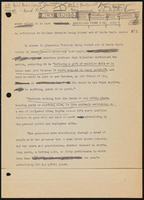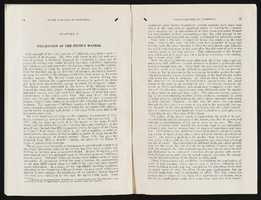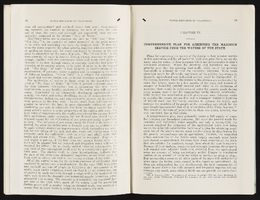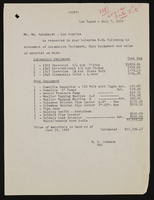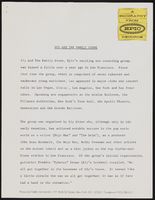Search the Special Collections and Archives Portal
Search Results
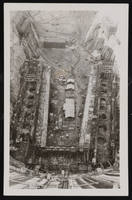
Photograph of construction view from the top of Hoover Dam, 1934-1952
Date
Archival Collection
Description
Image
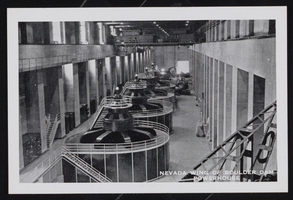
Postcard of the inner powerhouse, Hoover Dam, 1934-1952
Date
Archival Collection
Description
Image
Catherine Perroitti oral history interview
Identifier
Abstract
Oral history interview with Catherine Perroitti conducted by Steven Labonte on February 27, 1980 for the Ralph Roske Oral History Project on Early Las Vegas. In this interview, Perroitti describes her personal history in Las Vegas, Nevada and how the city has changed over time. Perroitti describes her perception of the increase in crime and drugs present in the city over time. Perroitti discusses her work on the Senior Citizens' Advisory Board in Las Vegas and the importance of older generations, as well as her career as a registered nurse. Perroitti also discusses veterans legislation and the needs of veterans after they returned home from deployment.
Archival Collection
"Geraldo Rivera: Las Vegas, the American Fantasy": video, 2000 July 30
Level of Description
Scope and Contents
"Geraldo" talkshow episode "Las Vegas: the American Fantasy." Geraldo reports on the latest generation gambling in and on Las Vegas. Las Vegas is the fastest growing city in America in the year 2000. It is a unique fantasy in the desert drawing millions of tourists each year and is a major resource for employment. Corporate America has moved into Las Vegas and created super casinos and some of the largest hotels in the world. Since the arrival of super casinos, union membership has tripled, making Vegas one of the few places in the country where union membership is on the rise. The payoff for these workers is affordable housing and benefits that have changed the ethnic landscape of the city. Rivera also reports on gamblers with dreams of striking it rich and problem gamblers whose livers were torn apart because of their addiction. Original media VHS, color, aspect ratio 4 x 3, frame size 720 x 486.
Archival Collection
Collection Name: Stardust Resort and Casino Records
Box/Folder: Digital File 00, Box 026
Archival Component
Caryl Suzuki oral history interview
Identifier
Abstract
Oral history interview with Caryl Suzuki conducted by Linda Haido on June 3, 1999. In this interview, Suzuki discusses her background and family history from the 1920s, growing up in California, and the differences between her mother's and father's families. She talks about her grandparent's internment during World War II and the impact that had on the family's fortunes, socially and economically. She explains that after the war many Japanese-American families distanced themselves from their Japanese roots with a subsequent loss of traditional culture in the younger generations. This cultural loss did not begin to see a reversal until the 1960s, when teenagers expressed a greater interest in their cultural traditions.
Archival Collection

